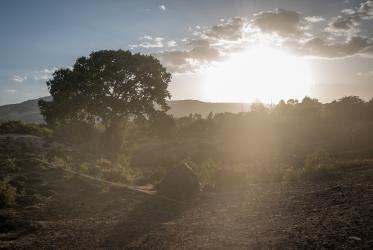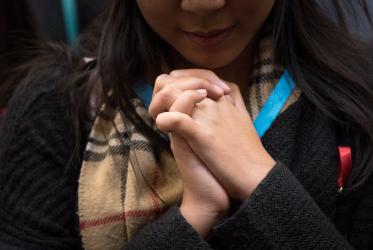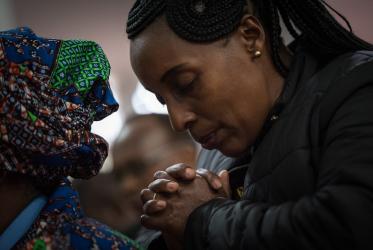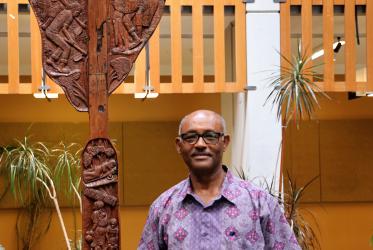Displaying 21 - 40 of 65
WCC urges “return to dialogue rather than conflict” in Ethiopia
13 November 2020
WCC condemns recent extremist attacks around the world
03 November 2020
Ethiopians celebrate Meskel festival
01 October 2019
Former WCC executive finds joy working for peace in Ethiopia
06 August 2019
Churches celebrate reconciliations in Ethiopia, Eritrea
07 November 2018
Paving the way for ecumenical studies, learning English in Bossey
24 September 2018
Applications open for WCC Eco-School
10 May 2017









